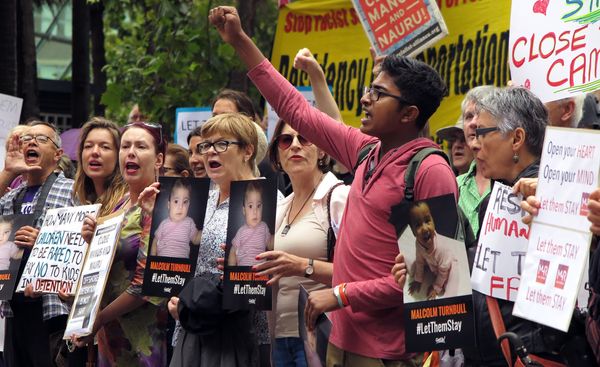
If you want to know how successful Australia’s long-term war on young people has been, look no further than the recent fertility statistics. Having kids is the one thing young people do that the rest of us, mostly, do not. And our fertility rate has fallen to a record low, because people can’t afford to have kids. In case you’re wondering, there’s strong evidence of a pretty much direct link between higher housing prices and falls in the fertility rate. That’s probably even more the case in a market like Sydney where some double-income households struggle to afford a mortgage.
Not that the high cost of housing, and the demands it places on young people, is the only front in the war. Young people face higher inflation that older people, and are more likely to be exploited by employers. And they’ll be the ones who suffer the most from Australia’s petro-state obsession with fossil fuels as the global warming crisis wreaks economic havoc in the decades to come.
One of the key tactics used by policymakers to immiserate young people is education debt. Starting in the 1980s as a rational method of requiring the beneficiaries of higher education to contribute to its costs — even if older generations had never faced such requirements — over the subsequent decades it came to form yet another economic burden young people were forced to bear. It required that, unless they have access to enough wealth to pay tuition up front, young people must enter the workforce with a large debt that might reach six figures, thereby pushing their ability to purchase a house ever further away.
The Albanese government has already reduced indexation of debt, a near-trivial change induced by the absurdities of linking government charges with inflation. Yesterday’s announcement that Labor will significantly lift income thresholds for repayment, adjust repayment assessment to income above the new threshold, and cut 20% of debts, is a far more substantial contribution to the living standards of young people from mid-2025.
Inevitably, the announcement was attacked by those representing the interests of older generations — right-wing economists and the Financial Review denounced it as unfair, illustrating a sudden interest in equity that is normally absent from their commentary. Presumably one can now confidently await the AFR and neoliberals like Steven Hamilton denouncing other parts of the tax system that are inequitable, like negative gearing, or super concessions for the very rich, or the novated lease scheme rort, or the franking credits rort. Or should we perhaps not hold our breath?
The opposition also denounced it. Shadow education minister Sarah Henderson and invisible man Angus Taylor issued a media release saying it was “not just grossly unfair to the 24 million Australians who don’t have a student loan, but especially favours graduates who have racked up very large debts”. This is the party that, by universal agreement, dramatically worsened the student debt problem with its fee changes to attack critical thinking and humanities degrees.
Then again, the Coalition is the party of old people, so it’s unsurprising. One of the few policies it has committed to — other than to burden young people and future generations not merely with the cost of the climate crisis but the hundreds of billions of dollars in taxpayer debt from its proposed nuclear power stations — is its policy to allow people to access their superannuation for home purchases, which will pump billions of dollars into housing demand and inflate house prices. The result of that policy will be a direct transfer of wealth from younger people to older people who owns homes, in effect shifting young people’s superannuation savings directly to asset owners, leaving the former no better off.
But in the absence of reforms to housing supply and affordability, that’s the fate of any scheme that increases the income of younger people. Cutting HECS debts for young people will simply free up money for them to direct to a housing purchase, once again pumping billions into housing demand and inflating prices, leaving them in a position not much better than when they started, unless we start building a lot more housing.
Boomers and gen Xers have got the game rigged — until we fix housing, nothing that makes life easier for young people is going to go anywhere except to older asset owners.







